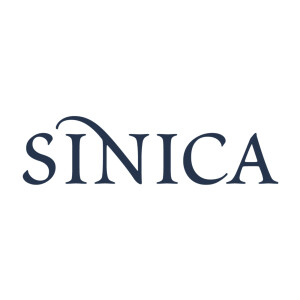
This week, Kaiser and Jeremy continue their conversation with Ambassador Chas W. Freeman, Jr. (see part 1 here), and focus on how he got interested in China, his fascination with the Chinese language, his early diplomatic career, his extraordinary experience as chief interpreter during Richard Nixon’s historic visit to China in 1972, and his prescient predictions of how China would evolve after the normalization of relations with the U.S.
Stay tuned for the third part of this interview, coming next week!
More Episodes
Improbable Diplomats: Historian Pete Millwood on how Scientific and Cultural Exchange Remade U.S.-China Relations
 2024-07-11
2024-07-11
Adam Tooze on the U.S., China, the Energy Transition — and Saying the Unsayable
 2024-07-04
2024-07-04
An Ecological History of Modern China, with Stevan Harrell — Part 2
 2024-06-27
2024-06-27
An Ecological History of Modern China, with Stevan Harrell — Part 1
 2024-06-20
2024-06-20
Peter Hessler on his new book, "Other Rivers: A Chinese Education"
 2024-06-13
2024-06-13
Taiwan, Ukraine, and the Sino-American Rivalry
 2024-06-06
2024-06-06
Jonathan Chatwin on Deng Xiaoping's 1992 Southern Tour
 2024-05-30
2024-05-30
Ed Lanfranco: from Hoarder to Historian
 2024-05-23
2024-05-23
Jay Kuo on Beijing's Gay 90s
 2024-05-16
2024-05-16
The Struggle for Taiwan: Sulmaan Wasif Khan of Tufts University on his new book
 2024-05-09
2024-05-09
Pulitzer Prize-winning journalist Jane Perlez on her new podcast series, Face-Off
 2024-05-02
2024-05-02
Political Scientist Iza Ding on Authoritarianism, Legitimacy, and "Resilience"
 2024-04-25
2024-04-25
The View from China: Leading IR scholar Da Wei of Tsinghua's CISS
 2024-04-18
2024-04-18
Did Netflix's Adaptation Ruin The Three-Body Problem?
 2024-04-11
2024-04-11
Live from AAS in Seattle: What has become clear to you recently?
 2024-04-03
2024-04-03
Back to the Future: David M. Lampton and Thomas Fingar on What Went Wrong and How to Fix It
 2024-03-27
2024-03-27
Kerry Brown: on What does the West Wants from China, and the Exercise of Chinese Power
 2024-03-21
2024-03-21
Historian Rana Mitter on ideology in China's "New Era" — live from Salzburg, Austria
 2024-03-14
2024-03-14
Schwarzman Scholars Capstone Showcase: The 2023 Winners
 2024-03-07
2024-03-07
The Ukrainian Factor in China's Strategy: a roundtable
 2024-02-29
2024-02-29
Create your
podcast in
minutes
- Full-featured podcast site
- Unlimited storage and bandwidth
- Comprehensive podcast stats
- Distribute to Apple Podcasts, Spotify, and more
- Make money with your podcast
It is Free

- Privacy Policy
- Cookie Policy
- Terms of Use
- Consent Preferences
- Copyright © 2015-2024 Podbean.com



 iOS
iOS Android
Android